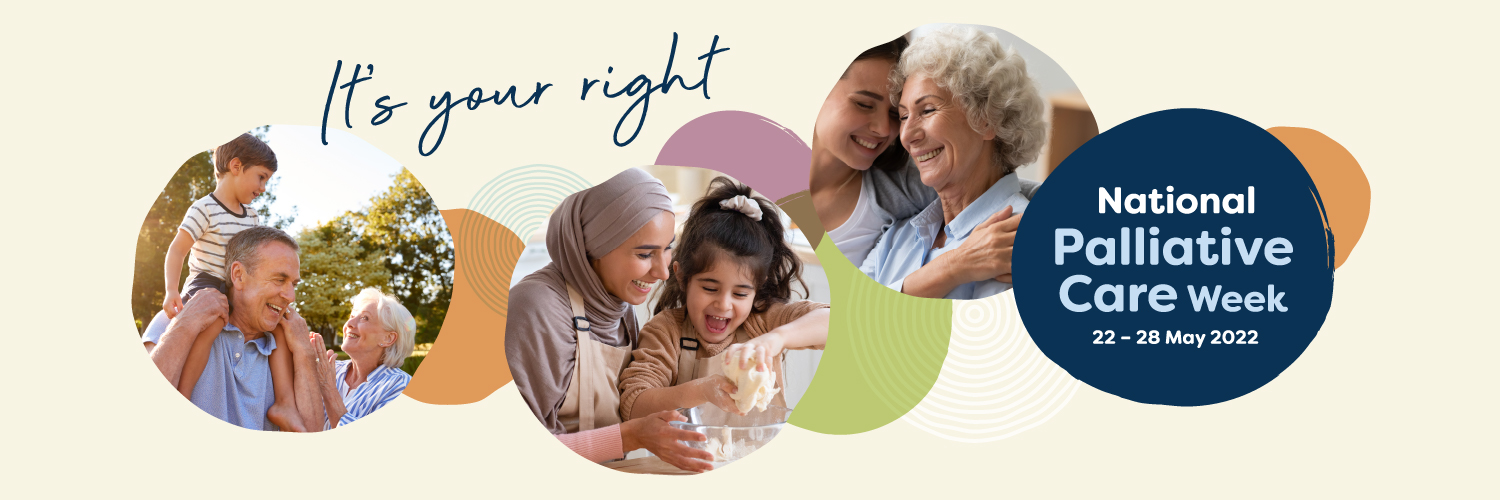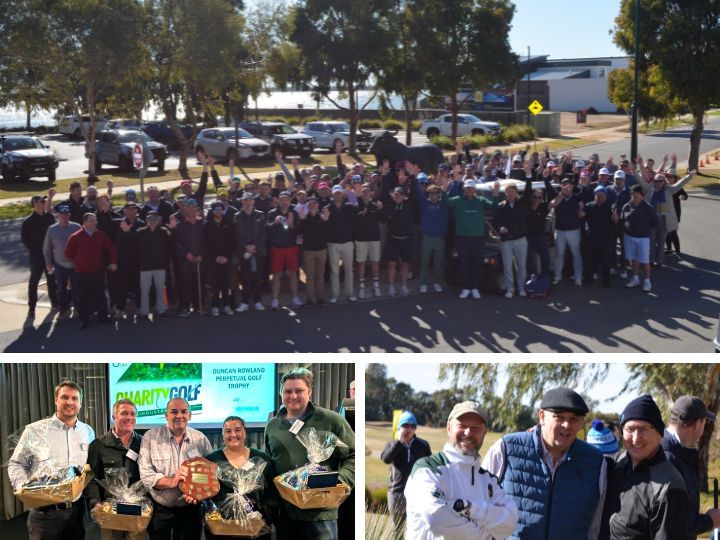This week is National Palliative Care Week (NPCW) which aims to raise awareness and understanding of palliative care in Australian communities.
The theme of this year’s National Palliative Care Week (NPCW); ‘Palliative Care It’s your right’, reinforces that palliative care is a universal human right and that all Australians should have access to high-quality palliative care when and where they need it.
This annual initiative seeks to broaden the community’s understanding and appreciation of palliative care, demonstrating its role in supporting the physical, emotional, spiritual and social needs of people living with a life-limiting illness and their families.
There are many misconceptions about Palliative Care, including that it is something that people only receive in the very last days of life. National Palliative Care Week is a good time to learn more about the role of Palliative Care, how to access it and how it can support people with motor neurone disease.
![]()
What
Palliative care services are a person-centred approach to care which can be provided to an individual with a life-limiting illness as well as a support system to family/friends. Palliative medicine aims to enhance quality of life and to support patients with their personal health care goals.
For people living with MND it can provide support to allow them to live their life as fully as possible and in the way that they choose. Often palliative care support can be provided from initial diagnosis onwards, meaning you can meet your community team and plan ahead.
Palliative care also ensures that the person at the centre of the care is kept as comfortable as possible throughout all stages of their illness. Examples of the services palliative care can provide are:
- Assistance for families to come together to talk about sensitive issues
- Relief of pain and other symptoms e.g. shortness of breath, managing saliva issues
- Links to other services such as home help or equipment
- Support for social, cultural and spiritual concerns
- Counselling support
- Referrals to respite care services
Who
Palliative care may be provided by a wide range of people, this may include your GP, community nurses, allied health team, care worker, neurologist and any other health care provider. Most communities will have a specialist team of palliative care health professionals and they will usually have experience and knowledge of MND.
Where
Palliative care is provided wherever the person and their family want, wherever possible. This care can be received at home, in residential care, hospital or a palliative care unit or hospice. You may also receive care in a combination of these places, depending on your wishes.
How
To access palliative care, a referral can be made by your doctor or any other healthcare provider. If you want to know more, your doctor or neurologist can advise if this care may be beneficial for you. You can also speak to your MND Advisor or NDIS Support Coordinator to ask for more information.

End-of-life care
End-of-life care is the last few weeks of life in which a patient with a life-limiting illness is approaching death. This stage of palliative care is when increased services and support are essential to ensure you receive quality, coordinated care from your health care team.
There is a publication available as a PDF or hard copy called End of life care: A guide for people living with MND. This guide explains treatments, who to talk with about sensitive topics, creating a legacy, how to address your wishes and ways of getting help and support.
You can view and download this guide HERE or contact your MND Advisor or InfoLine to request a copy.

Each year NPCW is also an opportunity to highlight and celebrate the work of not only hundreds of palliative care specialists and palliative care nurses, but also the support provided by general practitioners, volunteers, allied health professionals, community workers and everyone who works within the palliative care sector.
MND NSW would like to thank all the wonderful and dedicated Palliative Care Teams who provide such invaluable care and comfort to the MND Community throughout Australia.
Further information
- For more information about palliative care and Palliative Care Australia visit their website: Palliative Care Australia or contact the MND NSW Information line on 1800 777 175.
- You may also want to read our recent blog on Advance Care Planning here: National Advance Care Planning Week
Multilingual resources
In collaboration with Palliative Care Victoria, Palliative Care Australia has published a series of fact sheets on palliative care in 21 different languages. Multilingual resources - Palliative Care Australia
Aboriginal and Torres Strait Islander Peoples Palliative Care Resources - Aboriginal and Torres Strait Islander Peoples Palliative Care Resources - Palliative Care Australia




